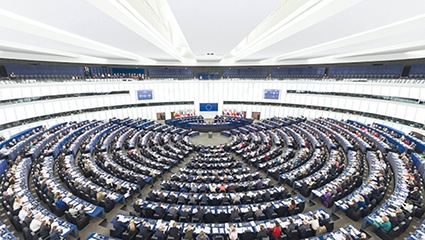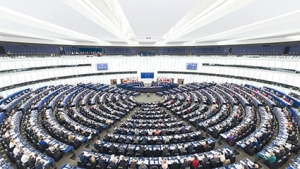€45 Million EU Macro-Financial Assistance Package Finalized
On Friday, the European Union concluded the €45 million macro-financial assistance (MFA) package that was first offered to Georgia in April of this year. Georgia and the EU have now signed a Memorandum of Understanding for the package, which is designed to help Georgia meet part of its external financing needs and support internal structural reforms.
A press release from the Delegation of the European Union to Georgia explained the rationale of the agreement, saying that although the country “has made significant progress,” Georgia still faces regional risks to its economic health and stability, likely referring to Russian aggression, and risks posed by “its own economic imbalances.”
“Georgia has shown strong and lasting commitment to economic reform, which the EU has consistently supported and fostered,” said Pierre Moscovici, Commissioner for Economic and Financial Affairs, Taxation and Customs. “This agreement includes policy measures that will help make the Georgian economy more resilient, with stronger and more inclusive growth for the benefit of its citizens.”
MFA is a crisis response instrument available to countries in the EU neighborhood, and is designed to complement International Monetary Fund (IMF) assistance programs. Georgia has previously received two MFA packages since the 2008 Georgia-Russia War, each worth €46 million, disbursed between 2009 and 2017. The third MFA package was proposed in September 2017, and adopted by the European Parliament and the Council in April 2018.
Representatives of the IMF completed their most recent visit last week, praising Georgia’s commitment to economic reform and revising GDP growth predictions upward to 5.5% for 2018.
The funding is divided into two portions – €10 million in grant money, and €35 million in medium-term loans, with unspecified “favorable financing conditions.” It will be distributed in two tranches. Georgia’s first EU MFA package was 100% grant based, and the second was 50% grants and 50% medium-term loans.
Disbursements of funds will be conditional, tied to Georgia’s continued adherence to its IMF program and the implementation of specific policies jointly agreed on by Georgia and the EU, enumerated in the Memorandum of Understanding. Disbursements are also dependent on Georgia’s continued respect of “effective democratic mechanisms, including a multi-party parliamentary system, the rule of law, and guaranteeing the respect for human rights.”
The EU aims to help Georgia lay the groundwork for sustainable and inclusive economic growth – a key priority of both Georgia and the EU – by supporting the government reform agenda. The policy conditions outlined in the Memorandum of Understanding build on Georgia’s EU Association Agreement, elaborating from existing government reform plans. Their goal is “to strengthen the Georgian economy in the areas of public finance management, the financial sector, social and labor market policies, and the business environment.”
The Parliament of Georgia is expected to ratify the Memorandum of Understanding in the coming weeks.
Responding to the most recent economic projections, Deputy Minister of Economy and Sustainable Develop Ekaterine Mikabadze emphasized the importance of Georgia's economic growth being sustainable and resilient to the complicated economic situation in the region.
“The reforms carried out by the government are due to the reduction of external vulnerability and higher inclusive growth in the country, which is the basis for the sustainable economic growth of Georgia,” said Mikabadze.
By Samantha Guthrie
Photo: European Union











